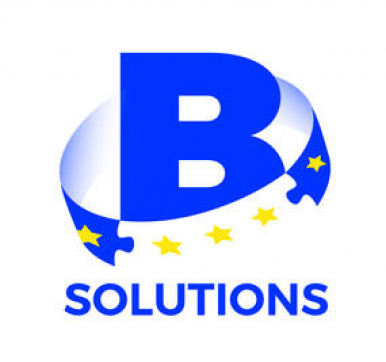Kennen Sie b-solutions?

Was ist B-solutions?
b-solutions ist der Plan B von Projektleitern, die in der Erarbeitung ihres grenzüberschreitenden Projekts auf ein administratives und/oder rechtliches Hindernis stoßen.
Öffentliche Behörden von Grenzverwaltungen haben die Möglichkeit, Informationen über ein rechtliches oder administratives Hindernis einzureichen, auf das sie bei der Durchführung von Projekten in einem Grenzgebiet stoßen. Die erfolgreichen Kandidaten erhalten Unterstützung von Experten, um die Schwierigkeiten zu beseitigen, die die Zusammenarbeit mit dem Nachbarland behindern.
b-solutions wird von der Generaldirektion Regional- und Stadtpolitik der Europäischen Kommission (DG REGIO) gefördert. Die Arbeitsgemeinschaft Europäischer Grenzregionen (AGEG) verwaltet b-solutions unter der in der Mitteilung „Förderung von Wachstum und Zusammenhalt in den Grenzregionen der EU“ vorgeschlagenen Maßnahmen.
Vergangene Fälle
Das Kompendium und seine Anhänge der 43 ersten Fälle finden Sie hier .
Dritter Call offen
Der dritte Call zur Einreichung von Vorschlägen läuft bis einschließlich 21. September 2020.
Weitere Informationen und die Formulare des Antragstellers finden Sie hier.
Testimonials
Wie sehen Fälle aus, die von b-solutions unterstützt werden? Wer hat bereits Fälle eingereicht? Hierunter finden Sie einige Beispiele in Englisch von bereits abgeschlossenen Fällen:
- A support to the cross-border employment of non-EU nationals
Boosting labour market in border regions is already challenging, but the problems double when you deal with the employment of third-country nationals!
Thanks to b-solutions, the Euregio Rhein-Maas-Nord obtained legal support to find ways that could facilitate the cross-border employment of non-EU citizens.
Mehr erfahren
- Free access to #AudioVisualContents to promote multilingualism
Tools such as the "geoblocking" pose a threat to the enhancement of multilingualism in EU border regions. The free access to audio-visual contents in the language of the neighbouring country, indeed, is still too often denied along EU borders..
This is exactly the situation of the German-speaking Community of Belgium as illustrated by the advice case submitted by the Euregio Meuse-Rhine.
In order to find possible solutions to the impossibility of local citizens of acessing contents from Germany, the Euregio was consulted by experts at the Maastricht University.
The first tangible results following the resolution strategy proposed are already visible.
Thomas de Vos, our former contact point at the Euregio Meuse-Rhine comments.
Mehr erfahren
- One expert, three cases, many solutions
It is such a rewarding feeling when we know that our experts' advices are already used to implement the proposed solutions by the representative of the cases under analysis.
Martin Unfried from the Institute for Transnational and Euregional cross border cooperation and Mobility at the Maastricht University advised three cases at the BE-NL border to find solutions fostering cross-border cooperation in the fields of employment, health-emergency services and institutional cooperation.
Upon fulfilment of the obstacles analysis, the Municipality of Woensdrecht in The Netherlands - one of the three entities consulted - has already created a working group to implement the solutions proposed by Mr Unfried.
Mehr erfahren
- A different perspective to support #SustainableMobility
Emilie Van de Weyer is in charge for energy and mobility matters at the Ministry of the German-speaking Community of Belgium and she kindly shared with us some words on b-solutions.
Aim of the advice case submitted was to find solutions to foster the creation of an e-bike sharing infrastructure in four Belgian municipalities, following the example of the neighbouring German town of Aachen.
Mehr erfahren
- b-solutions for the recognition of #ProfessionalQualifications
Andy Dritty, M.Sc, Regional Minister of the Province of Limburg comments on the successful path of the Province towards the elaboration of factsheets and roadmaps containing information on the recognition of qualification for highly demanded professions.
Mehr erfahren










